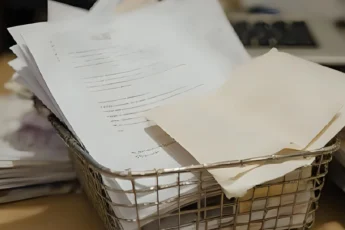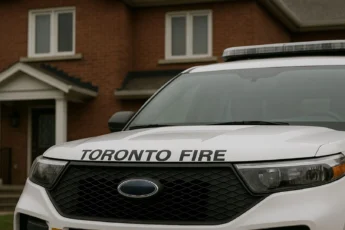Toronto homeowners face new taxes every year, and we get that it can be a lot to handle. To assist you in navigating this landscape, we’ve compiled crucial information about a particular tax: the Vacant Home Tax in Toronto.
Q1: When is a property subject to the Vacant Home Tax in Toronto?
A property is subject to the Vacant Home Tax if it is a residential property that is not the principal residence of the owner, is unoccupied for more than six months, and does not qualify for an exemption.
Q3: Who is exempt from the Vacant Home Tax in Toronto?
- Properties that are the principal residence of the owner,
- Properties that are occupied by a tenant,
- Properties that qualify for any of the circumstances below:
- instances where the owner has died,
- the vacant unit is undergoing repairs or renovations,
- the principal resident is in a hospital or long-term care,
- legal ownership has been transferred,
- the unit is required for employment outside Greater Toronto Area,
- or a court order prohibits occupancy for at least six months.
Note: While you may be exempt from the Vacant Home Tax under these circumstances, you are still required to declare your property status to the city. Failing to do so could result in penalties!
You might be interested: Navigating the Underused Housing Tax Landscape in Canada
Q4: What is the eligibility criteria for the “Death of a registered owner” exemption?
The property must be vacant for six months or more due to the death of an owner. This exemption can be claimed for up to two consecutive taxation years if the owner died in the current or previous taxation year. Starting in 2023, it can be claimed for up to three consecutive taxation years.
Supporting Documentation: Copy of death certificate.
Q5: How can the “Principal resident is in care” exemption be claimed?
The principal resident must be in a hospital, long-term, or supportive care facility for at least six months during the taxation year. This exemption can be claimed for up to two consecutive taxation years.
Q6: Does the Vacant Home Tax use the assessed value or market value of the property?
The Vacant Home Tax is based on the assessed value of the property, not the market value.
Q7: What is the difference between Assessed Value and Market Value?
The assessed value is determined by the local government for calculating property taxes and is generally lower than the fair market value, which is the amount a property would sell for on the open market, considering current market conditions and economic factors.
Q8: How is the Vacant Home Tax calculated for 2022 and 2023?
The tax is 1% of the Current Value Assessment (CVA) for properties declared, deemed, or determined to be vacant for more than six months. For example, if your property’s CVA is $1,000,000, the tax would be $10,000.
Q8: What changes in the Vacant Home Tax calculation for 2024 and beyond?
From 2024 onwards, the tax increases to 3% of the Current Value Assessment for properties vacant for more than six months. Using the same example, a property with a Current Value Assessment of $1,000,000 faces a $30,000 tax for 2024.
Q9: How is the tax amount determined based on the property’s occupancy status and Current Value Assessment?
The tax is calculated using the Current Value Assessment for the previous year, and if the property is vacant in 2024, the tax will be payable in 2025, based on the 2024 Current Value Assessment.
Q10: What penalties apply for missing the declaration deadline?
Effective January 1, 2024, a fee of $21.24 is charged for failing to submit a declaration by the deadline. Interest charges at 1.25 percent apply monthly to any overdue Vacant Home Tax for as long as taxes or charges remain unpaid.
You might be interested: Preparing For The Tax Season – Rental Income Tax Return
Q11: What happens if a property owner defaults on payment?
Upon default, the unpaid amount is added to the property tax roll and collected in the same manner as property taxes for the residential property.
Q12: What is the difference between Underused Housing Tax and Vacant Home Tax?
Underused Housing Tax (UHT) is a federal tax introduced by the CRA, affecting residential property owners nationwide. In contrast, Vacant Home Tax (VHT) is a municipal-level tax specifically implemented by the City of Toronto, impacting residential property owners within the city limits.
Q13: Why was the Vacant Home Tax (VHT) introduced in Toronto?
The Vacant Home Tax was introduced to encourage property owners to use their homes (rent out) and address housing shortages in Toronto by placing a tax on vacant properties.
Q14: How do I declare the occupancy status of my property for Toronto’s Vacant Home Tax?
To declare the occupancy status of your property for the Vacant Home Tax in Toronto, visit Toronto’s Vacant Home Tax page for detailed instructions and access to the necessary forms. The website provides a streamlined process to ensure property owners can easily comply with the declaration requirements.



